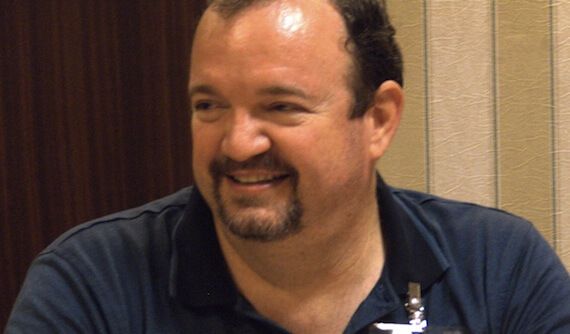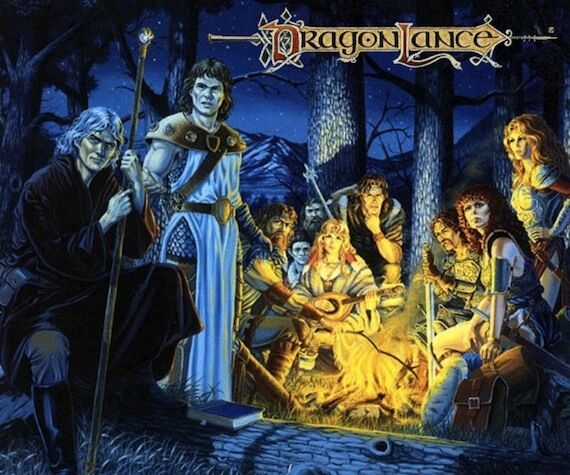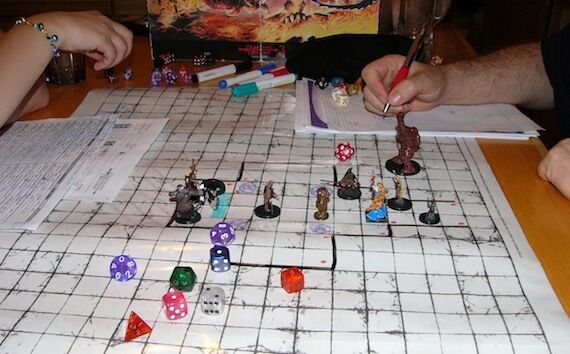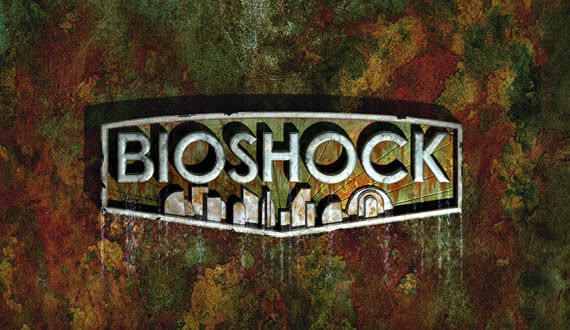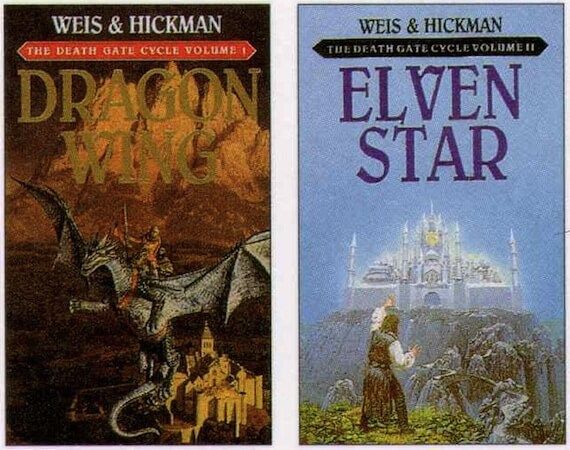In some circles, Tracy Hickman is less a mortal than a god, and while I don’t mean that literally, I don’t exactly mean it figuratively either. The veritable godfather of Dungeons & Dragons as well as the co-creator of the hit Dragonlance fantasy series among many others, Hickman is an accomplished author, a skilled game designer and, apparently, a consummate singer. And right now, he’s messing with me.
We met at a local sandwich shop to talk about a number of things: how he feels about video games, in general, as well as adapting some of his novels into games - but that quickly became a footnote in the ensuing conversation. Tracy Hickman isn’t an author so much as he is a storyteller. It’s not any particular medium he’s concerned with, it’s the message, and as far as Hickman is concerned - there are always better ways to relay that message.
For anyone familiar with some of his more recent work this shouldn’t come as a surprise. Hickman’s latest fantasy role-playing book XDM: Xtreme Dungeon Mastery, calls itself "the cure for the common game" and is mainly a guide for Dungeon Masters to improve their storytelling skills through a variety of means. There are chapters that deal with theater arts, voice-acting, and even using elaborate magic tricks to spice up the role-playing experience.
Dragon’s Bard, another of Hickman’s projects, is like an online, episodic, interactive novel with a subscription plan. Hickman calls it “writing like the Dickens” because it combines 19th century literature serial techniques with a 21st century online delivery system.
As we talk about some of the ideas and approaches to storytelling, our conversation is peppered with words and phrases like “modern publishing restraints” and “arbitrary leveling” and “not fun.” It becomes increasingly clear that Hickman is frustrated with current atmosphere in gaming/storytelling. The approaches to writing (and playing) games as well as the way stories are published - an old-fashioned, archaic and, somewhat paradoxical, process that's not as fun as it used to be.
It's one thing to identify the problems, but what about solutions? So I ask him how to fix it. And then he tells me. Kind of.
“There’s a systematic approach to story that lends itself to video games, an element that is consistently missing from story in video games. And I know what it is.”
He says the last sentence with a mischievous twinkle in his eye and even though I already know the answer to my next question I go ahead and ask it anyway.
“You’re not going to tell me?”
He picks up the rest of his sandwich and takes a bite before casually threatening my life.
“I’m not, because then I’d have to kill you.”
Since we’re talking about an idea that could potentially alter the way that games tell stories, maybe forever, I can kind of see his point. Still, I must seem slightly disgruntled because he raises his hand in a kind of semi-apology and expounds on his point.
“I wish I could tell you,” he says and he seems genuinely remorseful. “Let’s just say I’m looking for an outlet.”
At this point I really hope he finds one because the way that he talks about games is both passionate and fascinating. Most of all, the way that he talks about storytelling and advancement in gaming is refreshing. They’re not old ideas or, like he insists, maybe they are and they’ve just been forgotten. Seeing them realized could very well be the next evolution in the ongoing fusion of narrative and gameplay. But first some things will have to change. We’ll have to rethink the way that games are made from the ground up.
Hickman blames Dungeons & Dragons for a lot of that.
“Look,” he says, “D&D made us think that leveling is the point of the game but it’s stifling in terms of actual play and no one’s really doing anything about that. So many video games are more video than game. Oblivion was beautiful, but [it’s] not a game.”
“So what would you do differently?”
Hickman pauses to collect his thoughts and when he speaks it’s obvious that he has a plan. This isn’t improv. He has a clear and definite idea as to how he believes that games should tell stories and by all accounts he should. He’s been doing this for almost thirty years.
“I want someplace where I can visit and be part of a story,” he says. “Electronic games have no idea how to interface a player into a story. I find MMORPGs lacking in any real sense of play. Role-playing games in general are too complicated, too filled with minutiae, and they’ve forgotten how to be fun. Most of it is just chrome, spinning wheels and pinwheels that you tape to the antenna, and who cares?”
“Well, what about something like BioShock? Are you familiar with the scene with Andrew Ryan? The big reveal?”
“I am.”
“Do you think that that kind of commentary on game design and storytelling is a step in the right direction?”
He ponders that idea for a second but ultimately discards it.
“BioShock was a beautiful, stunning game with a frightening environment... but when you’re writing, characters will sometimes speak to you from the page. ‘What are we doing here?’ ‘What’s our motivation?’ That scene in BioShock was where [Ryan] is saying, ‘You’re just dragging us around by the nose because we don’t know another way to do it.’ And there are ways to do that, but no one is doing it.”
It’s a heavy thought. Is BioShock really as brilliant as I’d like to believe or is it just a case of subconscious misdirection with Ken Levine subliminally shouting, “Pay no attention to the developer behind the game!”?
We silently sip our sodas for a moment and I contemplate the idea.
“Okay,” I say finally, “So how do you make it better?”
“[In story-driven games] the actual functioning mechanics of the game aren’t too difficult,” Hickman explains, “so open up the story matrix so that it’s functional as a story but still works as a game. And lose the leveling idea of progress. Make progress more tangible and realistic. Being arbitrarily better at something is not helpful and immersing if it takes you to an unreal place. Being run through with a sword should kill someone whether or not they’re a level 50.”
I like the idea. A lot. But without going into specifics it’s hard to see how that would work out and Hickman is determined to play this one close to the vest.
Instead, we chat about some of his current favorite video games (Arkham Asylum and any LEGO game), stuff that he’s excited for (Kinect and trying out for the Moromon Tabernacle Choir), and why adapting his series The Death Gate Cycle into a game could be amazing (drawing magic runes using motion controls).
At some point I try to surreptitiously pick his brain again but he’s onto me.
“I did this thirty years ago and I know how it’s done,” he says. “It would make MMORPGs worth playing.”
And although that sounds a little arrogant, he says it with a kind of humble confidence that’s actually endearing. He’s not trying to insult the genre, he’s trying to help it. But just in case I don’t get it, he drives the point home.
“I’m just going to brag here, there’s no one in the world more qualified to do this than me.”
And, hey, maybe he’s wrong. But I see one of the men responsible for inspiring a generation of storytellers, for harnessing and organizing games based on nothing more than imagination, and I really, really hope that he’s right.

